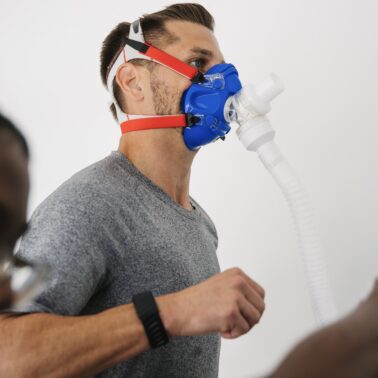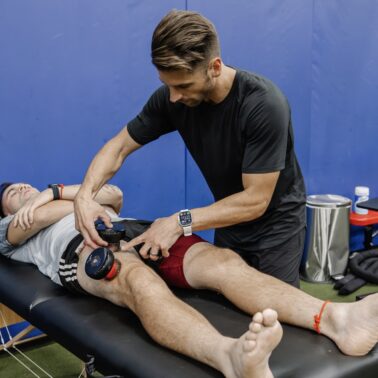“Post-surgery inactivity can lead to muscle atrophy or wasting. Adequate protein intake, combined with prescribed physical therapy, can help maintain muscle mass and strength during the recovery period.
Adam Loiacono
What You Will Learn
- Understand how protein is fundamental to the body’s healing process, particularly in synthesizing collagen, which is essential for repairing skin and connective tissues.
- The role of protein in muscle protein synthesis, which is crucial when muscles are damaged or cut during surgery.
- Practical advice on how to optimize protein intake for recovery.
Why is Protein Important for Surgery Recovery?
Undergoing surgery is a significant event for the body, requiring an array of nutrients for a complete and rapid recovery. Among these nutrients, protein stands out due to its critical roles in several recovery processes.
Protein: the Building Block of Recovery
- Role in Tissue Regeneration: Protein is fundamental in the synthesis of collagen, a key component of skin and connective tissue. Post-surgery, the body ramps up collagen production to close wounds and repair surgical incisions. Insufficient protein can lead to slower wound healing and potential complications.
- Muscle Protein Synthesis: During surgery, muscles may be damaged or cut, necessitating repair and regrowth. Protein provides the amino acids needed for muscle protein synthesis, a natural process where the body repairs and rebuilds muscle fibers.
- Counteracting Muscle Atrophy: Post-surgery inactivity can lead to muscle atrophy or wasting. Adequate protein intake, combined with prescribed physical therapy, can help maintain muscle mass and strength during the recovery period.
How Much Protein Do You Need?
The amount of protein you need depends on various factors including the type of surgery, your body weight, age, and overall health. Generally, the recommended dietary allowance (RDA) for protein is about 0.8 grams per kilogram of body weight per day.
However, post-surgery needs are typically higher. Dietitians that I have come to respect over the years and who I have consulted with during sport rehab cases recommend approximately 1g of lean protein per 1 pound of lean body mass.
Practical Advice for Optimizing Protein Intake
- Variety in Protein Sources: Ideally I prefer to incorporate a mix of animal and plant proteins to cover the full range of essential amino acids. If you are biased towards one particular lifestyle or diet (i.e. animal vs. plant), that works too! The key is assuring your provide an adequate volume of protein.
- Protein Timing: Distribute protein intake evenly throughout the day to continuously supply the body with the necessary amino acids for healing. As the rehab process increased and activity increase, timing of protein becomes important after intense strength training sessions.
- Consultation with Dietitians: It’s always advisable to discuss dietary changes with healthcare providers, especially when recovering from surgery. They can offer tailored advice based on the specific type of surgery and individual health needs.
Conclusion
In conclusion, understanding the multifaceted role of protein in tissue regeneration, muscle protein synthesis, and counteracting muscle atrophy highlights its importance in post-surgery recovery. Ensuring adequate and appropriate protein intake, in balance with other nutritional needs, can significantly enhance the healing process and help patients regain strength and functionality more effectively.



